Data Protection

What role do data protection officers play under data protection laws ?
Data protection officers (DPOs) are crucial for ensuring compliance with data protection laws in organizations. They advise on compliance, develop policies, ensure adherence to regulations, educate stakeholders, and act as a point of contact for personal data requests.
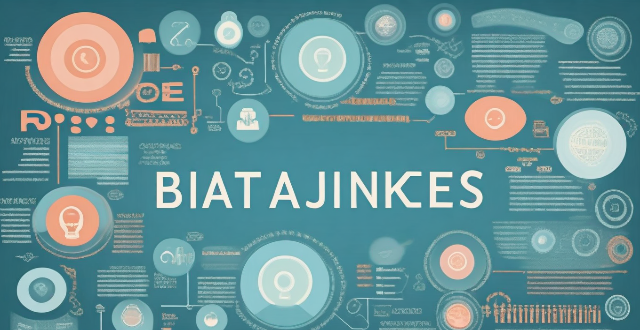
What is the difference between data privacy and data protection ?
The text discusses the difference between data privacy and data protection, emphasizing that understanding these concepts is crucial for managing personal information responsibly. Data privacy focuses on individual rights to control personal information, while data protection emphasizes organizational measures to safeguard that information. Both are essential for building trust and ensuring responsible data handling.

What is the General Data Protection Regulation (GDPR) ?
The General Data Protection Regulation (GDPR) is a comprehensive data privacy law that governs how personal information is collected, processed, and stored by organizations within the European Union (EU). It was designed to protect the rights of individuals and ensure their personal data is handled securely and transparently. Key features of GDPR include data minimization, consent, transparency, data portability, right to erasure, data protection officers (DPOs), and penalties for non-compliance. Benefits of GDPR compliance include enhanced trust between organizations and customers, risk mitigation through strong data protection measures, competitive advantage in the EU market, and increasing global relevance as other countries adopt similar laws. Challenges of GDPR compliance include complexity, cost, cultural differences leading to confusion and potential non-compliance, and technological limitations. In conclusion, the General Data Protection Regulation (GDPR) is a crucial piece of legislation that aims to protect the privacy rights of individuals within the European Union. While it presents both benefits and challenges for organizations, compliance with GDPR has become an essential aspect of modern business operations in today's digital age.

Can you explain the concept of 'data minimization' in data protection laws ?
Data minimization is a crucial principle in data protection laws that requires organizations to collect and process only the minimum amount of personal data necessary for specified, explicit, and legitimate purposes. This concept aims to protect individuals' privacy by limiting the potential harm that can result from the misuse or breach of their personal information. Key aspects of data minimization include collection limitation, purpose specification, data retention, data security, and accountability and transparency. Implementing robust security measures is crucial to ensure the confidentiality, integrity, and availability of personal data. Adhering to data minimization principles helps organizations comply with various data protection laws, fosters trust between individuals and organizations, reduces the risk of privacy breaches and violations, mitigates potential damage caused by cyberattacks or data breaches, and leads to cost savings for organizations due to reduced storage requirements and associated management costs.

What are the key principles of data protection legislation ?
Data protection legislation is designed to ensure that personal information is processed in a fair, transparent, and secure manner. The key principles of data protection legislation include: 1. Fairness, which involves transparency, purpose limitation, and data minimization. 2. Lawfulness and transparency, which require explicit consent and clear information about data processing. 3. Purpose limitation, which requires that data be collected for specific purposes and not further processed incompatibly. 4. Data minimization, which requires collecting only necessary data and retaining it only as long as necessary. 5. Accuracy, which requires keeping data up-to-date and correcting inaccuracies promptly. 6. Storage limitation, which requires not keeping data longer than necessary and storing it securely. 7. Integrity and confidentiality, which require appropriate security measures and ensuring confidentiality and privacy. 8. Accountability, which requires data controllers to ensure compliance with data protection principles and document their activities. By following these principles, organizations can protect individuals' privacy and build trust with their customers while complying with legal requirements.
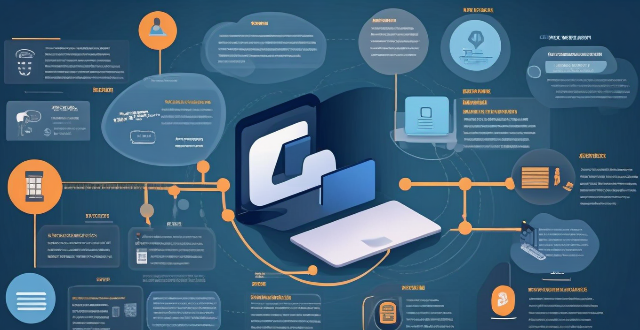
How do data protection regulations apply to social media platforms ?
This article discusses the crucial role of data protection regulations in safeguarding user information on social media platforms. It outlines key principles such as transparency, purpose limitation, and accountability that guide the handling of personal data by these platforms. The responsibilities of both social media platforms and users are highlighted, emphasizing the importance of informed consent, security measures, and user control. The article concludes by stressing the mutual responsibility of platforms and users in promoting a safe online environment through adherence to data protection regulations.
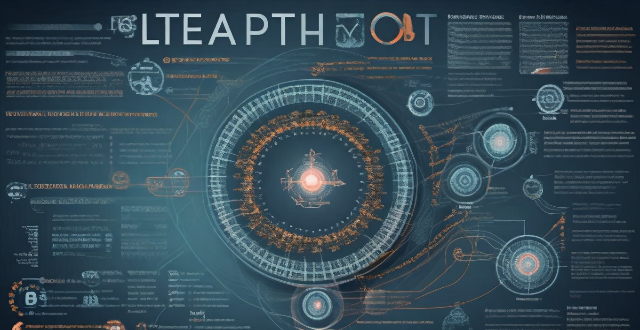
How do data protection regulations apply to artificial intelligence and machine learning ?
The article discusses the relationship between data protection regulations and artificial intelligence (AI) and machine learning (ML). It highlights that these technologies require large amounts of personal data, which raises concerns about privacy and security. The article outlines key considerations for ensuring compliance with data protection regulations, such as transparency, accountability, automated decision-making, and data minimization. It also provides best practices for organizations to implement AI/ML systems while maintaining compliance with data protection laws.
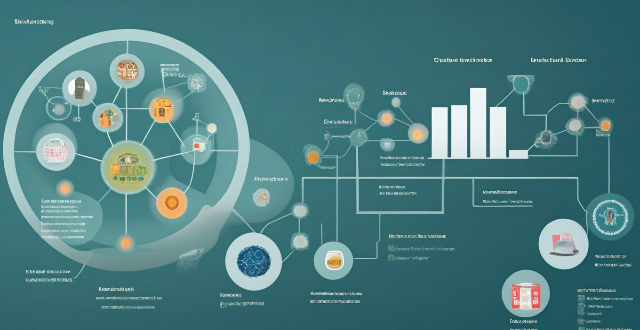
What are the requirements for obtaining consent under data protection laws ?
To obtain valid consent under data protection laws, organizations must adhere to specific requirements. These include providing clear and concise information about the data processing activities, ensuring that consent is freely given without pressure or coercion, making the consent specific and unambiguous for each purpose of data processing, informing individuals about their rights under data protection laws, and maintaining ongoing transparency and open communication. By following these guidelines, organizations can protect individuals' rights and privacy while building trust with their customers.

How do data protection regulations handle sensitive personal data ?
Handling sensitive personal data under data protection regulations requires strict adherence to principles such as consent, minimization, purpose limitation, and security. Regulations like the GDPR in the EU, CCPA in the US, and PIPEDA in Canada impose specific conditions for processing sensitive information. Organizations must adopt best practices including assessment, privacy impact assessments, employee training, access controls, and monitoring to ensure compliance and protect individuals' privacy rights.

What are the rules regarding data breaches under data protection regulations ?
Data protection regulations have been established to ensure the confidentiality, integrity, and availability of personal data. These regulations set out specific rules regarding data breaches that must be followed by organizations that handle personal data. The key rules regarding data breaches under data protection regulations include notification of data breaches, mitigating their impact, record-keeping and reporting, penalties for non-compliance, and best practices for preventing data breaches. By adhering to these rules and implementing best practices, organizations can reduce the risk of data breaches and protect individuals' personal data.
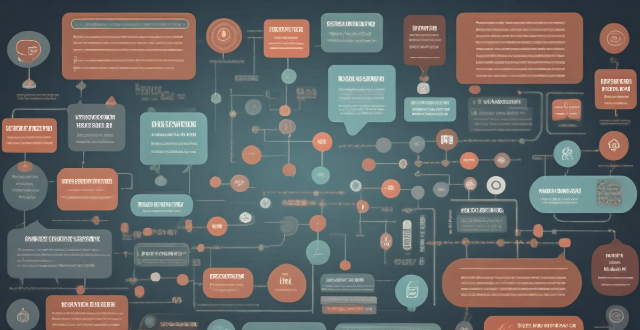
How do data protection regulations impact marketing strategies ?
Data protection regulations significantly impact marketing strategies by dictating how companies can collect, store, and use personal information. Marketers must adapt their strategies to comply with these regulations while achieving business objectives. Key areas affected include obtaining explicit consent for data collection, minimizing data collection, providing individuals with the right to access and erasure of their data, ensuring robust data security measures, and being aware of restrictions on international data transfers. By adhering to these requirements, marketers can build trust with consumers and maintain a positive brand image in today's data-driven world.

How do data protection regulations apply to cloud computing services ?
**Data Protection Regulations in Cloud Computing Services** Data protection regulations govern the collection, storage, processing, and transmission of personal information to protect individuals' privacy rights. These regulations apply to all organizations that process personal data, including those offering cloud computing services. Cloud service providers must ensure their services meet specific requirements under data protection regulations, such as data minimization, security, transparency, portability, and accountability. The application of these regulations to cloud computing services enhances security, improves trust, and increases transparency but also presents challenges like complexity, cost, and interoperability. As cloud computing services grow, understanding and complying with data protection regulations is crucial for both providers and users to protect personal data effectively.

What are the legal requirements for data privacy ?
Data privacy is a fundamental right that ensures the protection of personal information from unauthorized access, use, or disclosure. The legal requirements for data privacy vary by country and jurisdiction, but there are some general principles that most countries follow, such as consent, limited purpose, transparency, security, onward transfer, and rights of the individual. Examples of legal requirements in different countries include the Federal Trade Commission Act, Gramm-Leach-Bliley Act, Health Insurance Portability and Accountability Act in the United States; the General Data Protection Regulation in the European Union; and the Personal Information Protection and Electronic Documents Act and Personal Health Information Protection Act in Canada.

How do data protection regulations impact the use of cookies on websites ?
Data protection regulations have significant impacts on the use of cookies on websites. Website owners must comply with strict rules regarding explicit consent from users, transparency and disclosure of cookie use, minimization of data collection, data security, and avoidance of penalties for non-compliance. By doing so, they can protect user privacy and build trust while still providing an optimal user experience through the use of cookies.

What are the penalties for non-compliance with data protection regulations ?
Non-compliance with data protection regulations can result in significant penalties, including fines, legal action, and damage to a company's reputation. The specific penalties depend on the jurisdiction and the severity of the violation. Some common consequences include: - Fines and Financial Penalties: GDPR violations can result in fines up to €20 million or 4% of global annual turnover for less severe infringements, and up to €40 million or 8% of global annual turnover for more serious violations. CCPA violations can result in fines up to $2,500 per violation for each time a Californian resident's rights are violated, and up to $7,500 per violation if the violation involves selling or sharing personal information without consent. - Legal Action: Class action lawsuits initiated by individuals or groups may claim damages for non-compliance, with potential for large settlements depending on the number of affected parties and the severity of harm caused. Government investigations may involve possible subpoenas and audits to assess compliance levels and potential violations, as well as enforcement actions such as cease and desist orders or demands to implement corrective measures. - Reputational Damage: Loss of trust from customers when data breaches occur can erode customer faith in a company's ability to protect their information, and negative publicity from data misuse can permanently harm a company's brand image. Difficulty in partnerships and deals may arise, with other companies ending collaborations due to associated risks, and potential investors being wary of putting money into a company with known compliance issues. - Market Access Restrictions: In extreme cases, a company might be prohibited from handling certain types of data, and some regions might restrict entry to companies that have a history of non-compliance. - Corrective Measures and Costs: Technical and organizational changes may be required, such as upgrading systems to ensure compliance with technical standards like encryption and security protocols, and employee training to improve understanding of data protection laws and best practices. Legal fees for representation in legal proceedings or during investigations, and settlement payments to resolve class action lawsuits or government enforcement actions, may also be necessary. It is crucial for organizations to prioritize data protection compliance as part of their business strategy to avoid these adverse effects.

What is the importance of understanding material safety data sheets (MSDS) in chemical handling and protection ?
The text discusses the importance of understanding Material Safety Data Sheets (MSDS) in chemical handling and protection. It explains what an MSDS is, its significance for health and safety, compliance with regulations, environmental protection, and risk management. The article emphasizes that understanding MSDS is crucial for workers and employers to ensure a safe and healthy work environment.

What is data privacy ?
Data privacy is the protection of personal information from unauthorized use. It's important for individual rights, building trust, legal compliance, and risk mitigation. Principles include data minimization, anonymization, encryption, transparency, consent, access control, retention, integrity, and accountability. Best practices involve regular audits, employee training, updating policies, secure systems, and response plans for data breaches.
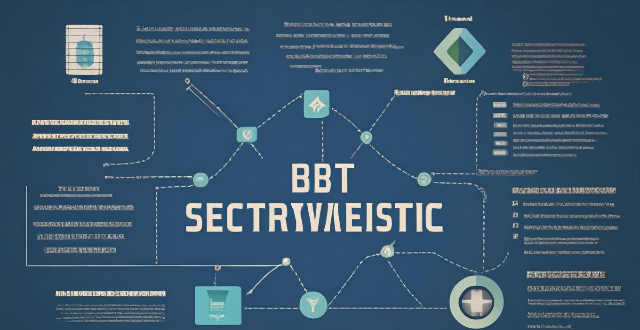
What are the best tools and technologies for network security protection ?
This article discusses some of the best tools and technologies for network security protection. The list includes firewalls, intrusion detection systems (IDS) and intrusion prevention systems (IPS), virtual private networks (VPNs), antivirus and anti-malware software, next-generation firewalls (NGFWs), network access control (NAC), and security information and event management (SIEM). These tools and technologies can help organizations protect their networks from unauthorized access, data breaches, and other cyber threats. However, it's essential to remember that no single tool or technology can provide complete protection on its own. A layered approach combining multiple solutions is often the most effective way to safeguard your network against today's complex threats.

What happens to my data during an iPhone repair ?
When you send your iPhone for repair, the repair center will take several steps to protect your data, including diagnostics, backup, data protection, testing, verification, and return of your device.

How does encryption contribute to network security protection ?
Encryption is pivotal for network security, offering robust defense against unauthorized data access and cyber threats. It transforms readable plaintext into ciphertext using sophisticated algorithms, protecting data at rest, in transit, or being processed. Encryption's economic impact is significant, with organizations leveraging it reducing financial impact of data breaches by over USD 220,000. The global encryption software market is projected to hit USD 20.1 billion by 2025. Regulatory compliance and standards are increasingly requiring encryption for data privacy and security. Its historical significance dates back to ancient civilizations, evolving from wartime secrecy to everyday data protection. Network security objectives include preventing unauthorized access, detecting and interrupting cyberattacks, and ensuring authorized user access. Data breaches have costly consequences, with the global average cost standing at USD 4.45 million per incident. A defense in depth approach involves layering multiple security controls between attackers and potential vulnerabilities. In conclusion, encryption is an indispensable component of network security protection, offering a robust defense against unauthorized data access and cyber threats. Its ability to transform plaintext into ciphertext, compliance with regulatory standards, and evolving sophistication through AI illustrate its dynamic role in safeguarding digital communications. For individuals and organizations alike, investing in encryption is not just a recommendation but a necessity for safeguarding against the ever-growing landscape of cyber threats.

What are the benefits of using a virtual private network (VPN) for network security protection ?
The text discusses the benefits of using a Virtual Private Network (VPN) for network security protection. It highlights seven key advantages: 1. **Encryption and Secure Data Transmission**: VPNs encrypt internet traffic, securing data transmission, especially on public Wi-Fi networks. 2. **Anonymity and Privacy**: By routing connections through remote servers, VPNs mask IP addresses and physical locations, enhancing online privacy. 3. **Access to Geo-Restricted Content**: VPNs enable users to bypass geographical restrictions, accessing blocked or restricted content. 4. **Protection Against Bandwidth Throttling**: VPNs can prevent ISPs from managing certain types of traffic by encrypting it. 5. **Enhanced Security on Public Networks**: Using a VPN on public networks adds an extra security layer against potential hackers. 6. **Remote Access to Work Networks**: For businesses, VPNs provide secure remote access to company resources. 7. **Avoid Censorship**: In regions with internet censorship, VPNs can help users access an unrestricted internet. The note emphasizes choosing a reputable VPN provider and practicing good cybersecurity habits for optimal protection.

What is data encryption and how does it work ?
Data encryption is a crucial cybersecurity measure that transforms plaintext into ciphertext, protecting it from unauthorized access. It involves the use of complex algorithms and secret decryption keys. Encryption is significant for securing data at rest, in transit, and during processing, helping meet compliance requirements and reducing financial risks associated with data breaches. Its evolution includes historical precursors and wartime innovations, with AI expected to enhance its capabilities in the future.

How can ecological protection areas contribute to environmental education and awareness ?
Ecological protection areas are crucial for both biodiversity conservation and environmental education. These areas offer hands-on learning experiences, interactive programs, sustainable practice promotion, community outreach, research efforts, and media publicity to raise awareness about the importance of preserving ecosystems. Through these initiatives, ecological protection areas can inspire individuals to adopt eco-friendly habits and contribute to global conservation efforts.

Why is data privacy important ?
Data privacy is crucial in the digital age, protecting individuals and benefiting organizations. It ensures control over personal information, prevents misuse, and builds trust. Organizations mitigate risks, gain customer loyalty, and comply with laws by prioritizing data privacy. Key principles include transparency, individual control, data minimization, and security measures. Data privacy will continue to shape the relationship between individuals and technology, balancing innovation and privacy rights.

What are the benefits of using data encryption in business ?
Data encryption in business offers protection of sensitive information, compliance with legal requirements, enhanced customer trust, defense against cyber threats, and controlled data access. It ensures confidentiality and integrity of communications, helps meet regulatory standards, safeguards personal data, builds customer confidence, mitigates risks of data breaches, guards against malware and ransomware, provides role-based access control, and simplifies key management. This makes encryption an essential tool for securing digital assets and strengthening a company's market position.

What role does data privacy play in the use of data analytics in education ?
Data privacy is a crucial aspect of educational data analytics, ensuring the protection of student information, compliance with legal frameworks, and building trust among stakeholders. It encompasses measures such as maintaining confidentiality, integrity, and availability of data, adhering to regulations like FERPA, and obtaining explicit permission from students and parents. Challenges include potential misuse of data, bias, and discrimination. Best practices involve developing clear policies, implementing technical measures like encryption and access controls, and educating staff and students about their rights. By addressing these challenges and implementing best practices, educational institutions can harness the power of data analytics while safeguarding the privacy rights of their students.

What are the best iPhone cases for protection ?
The best iPhone cases for protection include the OtterBox Defender Series, Spigen Tough Armor, UAG Monarch, Speck Presidio2 Pro, Case-Mate Tough Groove, and Incipio Duo. These cases offer features such as durability, drop protection, slim design, military-grade protection, grip, scratch resistance, Microban antimicrobial technology, dual-layer design, impact absorption, two-tone design, and precision fit. Consider these factors when selecting an iPhone case to ensure optimal protection for your device.

Is data encryption necessary for all types of businesses and industries ?
The Importance of Data Encryption in Modern Business Operations Data encryption is a crucial aspect of modern business operations, ensuring confidentiality, integrity, and availability of sensitive information. Different types of businesses and industries handle varying degrees of sensitive data, requiring robust security measures. Healthcare, finance, e-commerce, and legal sectors are examples where encryption is necessary due to the nature of the data they handle or regulatory requirements. However, the necessity of implementing encryption can depend on factors such as the type and amount of sensitive data, risk assessment, and compliance with legal requirements. To implement data encryption, businesses must assess their needs, develop a data protection policy, choose appropriate technologies, integrate them into systems and processes, and regularly monitor and maintain these measures. While not always necessary for every business, data encryption is often a wise investment that can protect sensitive information and ensure business continuity.
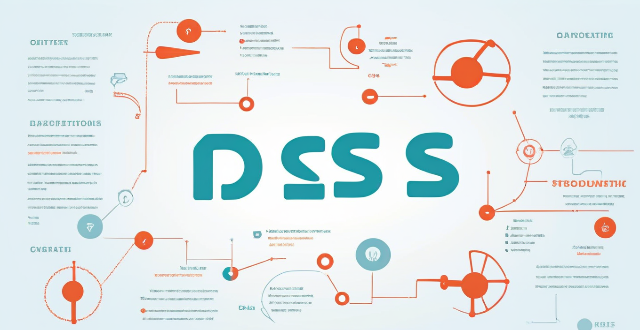
What are the risks associated with weak or improperly implemented data encryption ?
This article discusses the risks associated with weak or improperly implemented data encryption, which can lead to data breaches, loss of trust from customers and stakeholders, legal and regulatory compliance issues, difficulty in recovery, vulnerability to advanced threats, difficulty in detecting breaches, and diminished protection against insider threats. It emphasizes the importance of using strong encryption algorithms, implementing them correctly, and regularly reviewing and updating encryption practices to protect sensitive information and maintain trust.
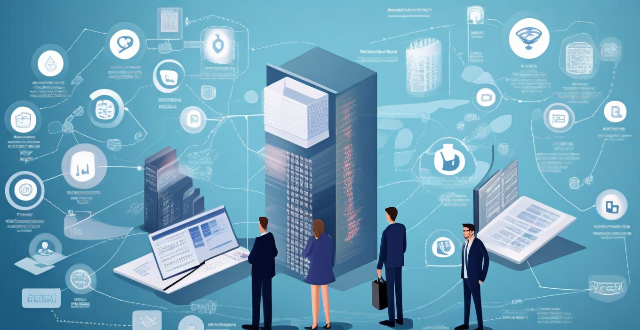
How do remote education platforms ensure data privacy and security ?
Remote education platforms ensure data privacy and security through encryption, access controls, two-factor authentication, regular security audits, and data retention policies. These measures help protect user data during transmission and storage, restrict access to sensitive information, add an extra layer of security, identify and fix vulnerabilities, and minimize the risk of data breaches.